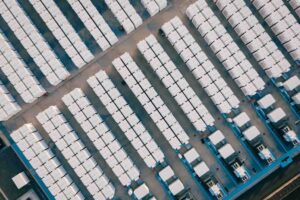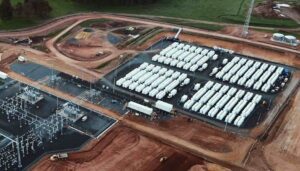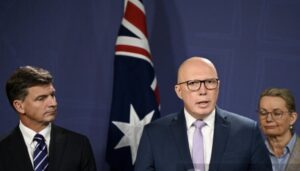Australia can now say it has a climate change policy again – of sorts – after the Senate voted through the Direct Action package following the agreement between the Abbott government and the Palmer United Party led by aspiring coal baron Clive Palmer.
Environment Minister Greg Hunt hailed the passage as “real and practical action to achieve our emissions goals and targets without a carbon tax.”

The rest of the Coalition, the Palmer United Party, independent senator Nick Xenophon and The Business Council of Australia shared his enthusiasm, but few others were impressed.
The Greens were particularly appalled by details in the Direct Action package that will allow for Tasmania native forests to be cut down and burned to generate electricity.
They noted that the Tasmanian logging industry had hitherto been prevented from claiming such credits under the both the renewable energy target and the Carbon Farming Initiative, but the deal with the Palmer United Party removed s.27(4)(j) of the Carbon Credits (Carbon Farming Initiative) Act that had prohibited them from earning credits for projects that involve the destruction of native forests.
Greens leader Christine Milne said the deal meant that Hunt could “create any bogus method that says something like, because native forest burning to create electricity will ‘displace’ brown/black coal, that there are less emissions, so they can be eligible for credits to be bought by the Commonwealth.”
“This provides a long-sought after business case for the destruction of Tasmania’s and other forests,” she said, noting that the Warburton Review had also recommended allowing burning of native forest wood to gain renewable energy certificates.
Labor described Direct Action as “a waste of money that will do nothing to reduce Australia’s carbon pollution.”
Environment spokesman Mark Butler cited new research from Reputex that suggested the policy would struggle to achieve even 30 per cent of the current 5 per cent reduction target, let alone higher targets that would match Australia’s commitment to help cap average global warming to 2C.
The Climate Change Authority has suggested the 2020 target should be 19 per cent reduction, and that Australia should aim for reduce emissions by 40-60 per cent by 2030, something it says could only be achieved with a market based scheme.
“It (Direct Action) is a dressed up slush fund that all economists and climate scientists say is expensive and ineffective,” Butler said in statement.
Even The Australian ran a story quoting new Australian Conservation Foundation president Geoffrey Cousins – also a director of Telstra – lambasting the BCA for supporting Direct Action, saying that such a policy would never be approved by the board of any commercial entity.
“If Direct Action was presented to the boards of BCA members they’d throw it out the door,’’ he said. “But here, because there is a pile of cash involved, the organisation supports it.’’
The Climate Institute said the policy would be likely be a millstone than a milestone for the government.
“The agreements with the crossbenchers have made improvements but haven’t established a credible climate policy with a reasonable chance of achieving even the lowest level of Australia’s 5-25 per cent 2020 target range, let alone the deeper decarbonisation of the economy that will be needed beyond 2020,” said John Connor, CEO of The Climate Institute.
“Australia has now moved from a system where some of our biggest polluters started to pay for their pollution reductions to one where taxpayers will pay for those reductions through the Emission Reduction Fund.
“This is an inefficient, uncertain mechanism that risks paying for activities that would have been done anyway. All publicly available independent modelling finds the Fund will fall short.”
Labor let the last word be a quote from former Liberal leader and then environment spokesman Malcolm Turnbull, and leading economists Ken Henry and Ross Garnaut.
The point here is this: if we are indeed going to commit to reducing Australia’s carbon emissions below some business-as-usual baseline level – and that does seem to be the commitment of all politicians in Australia, at least of major political parties – if that’s what we’re going to do, then tackling that issue through any mechanism other than an emissions trading scheme will necessarily be more damaging on the Australian economy.
Ken Henry, interview with Sarah Ferguson on ABC 7.30, 12 March 2014
Having the government pick projects for subsidy is a recipe for fiscal recklessness on a grand scale, and there will always be a temptation for projects to be selected for their political appeal. In short, having the government pay for emissions abatement, as opposed to the polluting industries themselves, is a slippery slope which can only result in higher taxes and more costly and less effective abatement of emissions.
Malcolm Turnbull, House of Representatives, 8 February 2010
The glimpse of the second contestant should make us cautious about awarding the prize to the Martian under the veil until the second contestant is in full view.
Ross Garnaut, submission to Direct Action Senate Inquiry, March 2014










